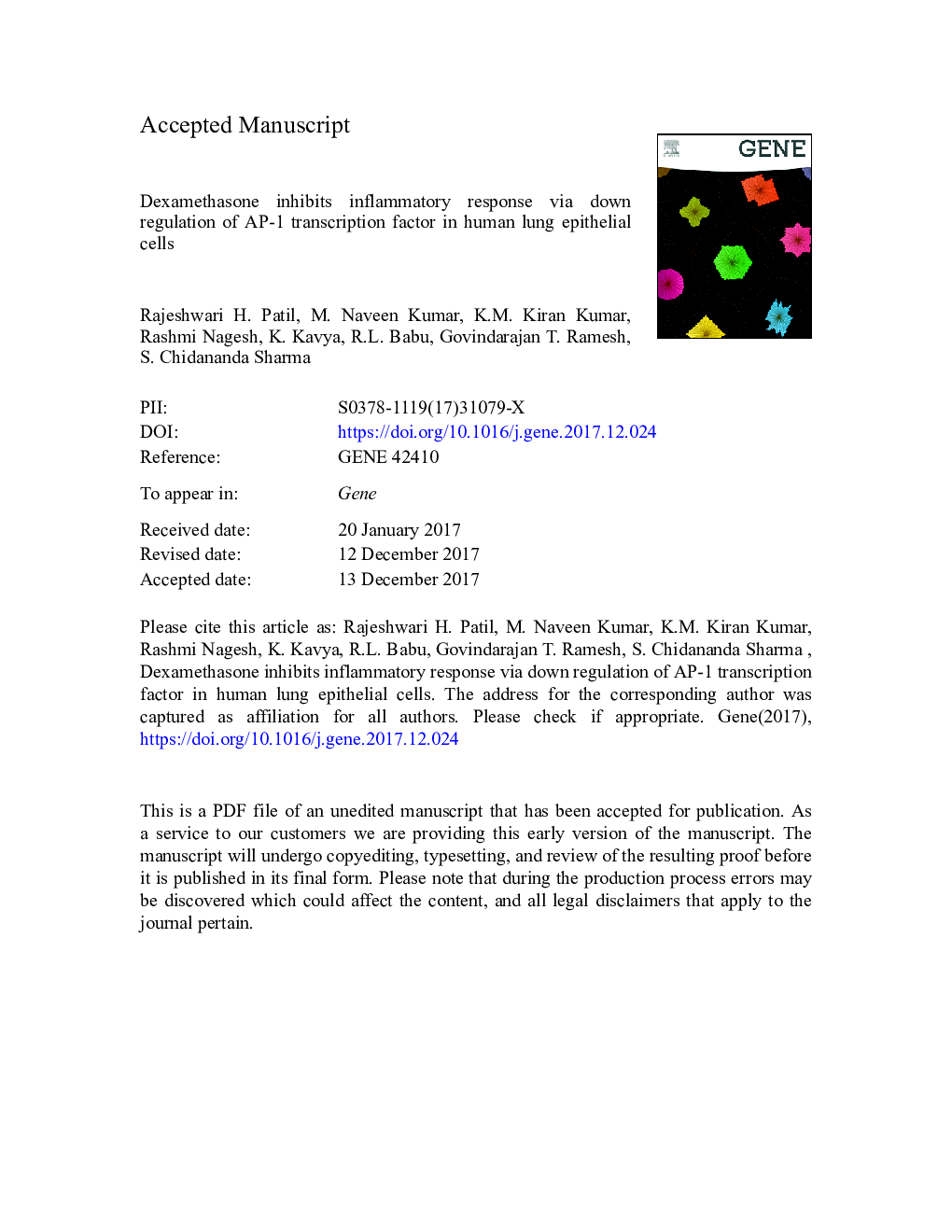| Article ID | Journal | Published Year | Pages | File Type |
|---|---|---|---|---|
| 8645708 | Gene | 2018 | 28 Pages |
Abstract
The production of inflammatory mediators by epithelial cells in inflammatory lung diseases may represent an important target for the anti-inflammatory effects of glucocorticoids. Activator protein-1 is a major activator of inflammatory genes and has been proposed as a target for inhibition by glucocorticoids. We have used human pulmonary type-II A549 cells to examine the effect of dexamethasone on the phorbol ester (PMA)/Lipopolysaccharide (LPS) induced pro-inflammatory cytokines and AP-1 factors. A549 cells were treated with and without PMA or LPS or dexamethasone and the cell viability and nitric oxide production was measured by MTT assay and Griess reagent respectively. Expression of pro-inflammatory cytokines and AP-1 factors mRNA were measured using semi quantitative RT-PCR. The PMA/LPS treated cells show significant 2-3 fold increase in the mRNA levels of pro-inflammatory cytokines (IL-1β, IL-2, IL-6, IL-8 and TNF-α), cycloâoxygenase-2 (COX-2) and specific AP-1 factors (c-Jun, c-Fos and Jun-D). Whereas, pretreatment of cells with dexamethasone significantly inhibited the LPS induced nitric oxide production and PMA/LPS induced mRNAs expression of above pro-inflammatory cytokines, COX-2 and AP-1 factors. Cells treated with dexamethasone alone at both the concentrations inhibit the mRNAs expression of IL-1β, IL-6 and TNF-α compared to control. Our study reveals that dexamethasone decreased the mRNAs expression of c-Jun and c-Fos available for AP-1 formation suggested that AP-1 is the probable key transcription factor involved in the anti-inflammatory activity of dexamethasone. This may be an important molecular mechanism of steroid action in asthma and other chronic inflammatory lung diseases which may be useful for treatment of lung inflammatory diseases.
Keywords
Related Topics
Life Sciences
Biochemistry, Genetics and Molecular Biology
Genetics
Authors
Rajeshwari H. Patil, Naveen Kumar M., Kiran Kumar K.M., Rashmi Nagesh, Kavya K., Babu R.L., Govindarajan T. Ramesh, S. Chidananda Sharma,
